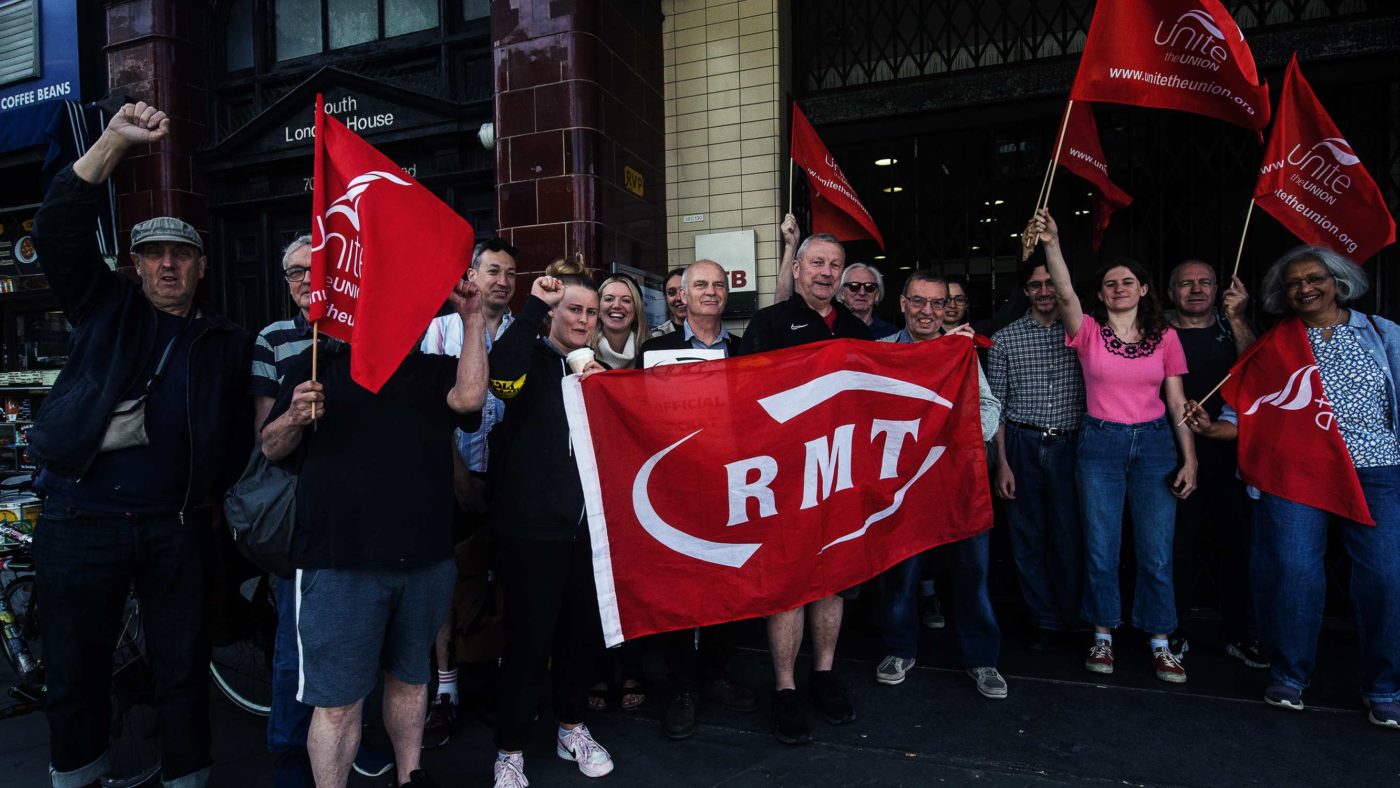You’ve got to credit the effort. As a journalist reports that pupils are sleeping on mates’ floors in order to beat the rail strike and get to their exams, Conservative MP Mark Jenkinson tweeted: ‘A vision of @UKLabour’s Britain…’
Briefly, in my pre-caffeine morning haze, I had the Life on Mars thought – ‘Am I mad, in a coma, or back in time?’ Because this is the Conservatives’ Britain, isn’t it? They did win an overall majority a couple of years ago and, whilst they have done nothing much with it, that majority still exists.
Parts of the Government are doubtless relishing a big showdown with the unions. It combines Boris Johnson’s tendency to seek fights instead of solutions with the long-standing Conservative vice for Thatcherian nostalgia. It’s just like the Eighties!
But there are a couple of things to bear in mind. The first is that Margaret Thatcher won her battle with the miners, and did so after years of tactical retreats and careful preparation. Johnson is reportedly preparing to change the law to allow agency strikebreakers on the railways, but is nonetheless heading into a ‘summer of discontent’ without that legislation in place.
The second is the ‘who governs?’ point. That was Ted Heath’s slogan in 1974, when he sought a mandate from the voters to take on the unions. The electorate, noting that his government hadn’t exactly had the situation in hand until that point, turned to Labour.
What MPs such as Jenkinson need to realise is that they cannot expect the public to treat bad things happening on the Tories’ watch as a sort of sneak preview of what will happen on Labour’s watch. Blaming one’s problems on the preceding Labour government, as the Coalition did, is one thing; blaming them on the next one strains credulity.
Too often, the Government’s default position seems to be complaining loudly about this or that without actually doing anything about it. For example, Sajid Javid decrying ‘woke waste’ in the NHS whilst ministers leave untouched the various pieces of legislation, such as the Equality Act 2010, which mandate that those jobs exist.
Although this is not a great strategy for getting anything done, Johnson and his team can often get away with it because the things they’re complaining about don’t directly affect ordinary people’s lives too much. It might really grind a voter’s gears that their local hospital is spending however much on diversity and inclusion officers, but it isn’t making their life worse in an obvious way.
Strikes are very different. They stop people getting to work or schools; they cost businesses and the economy a lot of money. And, like the footage of small boats on Dover beaches, they are also an extremely visible symbol of loss of control when they bring a nationwide essential service to a halt.
Perhaps things would be worse under Labour. On the other hand, perhaps Labour would just pay the RMT off. Would voters really mind? It’s been a while since austerity-style arguments about public spending restraint cut much ice in the polls.
Grant Shapps will also have to be wary because this mass industrial action broadly coincides with the advent of Great British Railways, his new semi-nationalisation initiative. It would be deeply unfortunate – although historically appropriate, given the reputation of the old British Rail – for voters to come to associate the new brand primarily with paralysing industrial action.
It shouldn’t need saying, but the Tories need to give voters positive reasons to keep them in office – to show that voting Conservative leads to a Britain that works. If they end up looking like bystanders, complaining about strikers and people smugglers and the cost of living without doing much about any of it, the voters will give them the same answer they gave the last batch of Tories to try that approach: ‘Who governs? Not you.’
Click here to subscribe to our daily briefing – the best pieces from CapX and across the web.
CapX depends on the generosity of its readers. If you value what we do, please consider making a donation.


